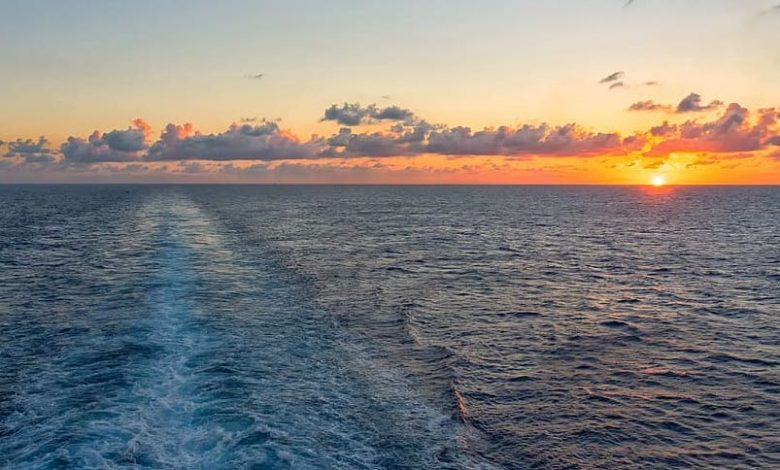Block exemption regulation: Shippers ought to be careful what they wish for

Following on from yesterday’s Splash article citing the growing masses pressurising the EU not to extend the block exemption regulation (BER) for liner shipping, Andy Lane from CTI Consultancy comes out in support of the regulation. “The winners in the free market will be those with the greater client value proposition,” he argues today.
The EU’s BER (block exemption regulation) applies to a number of different industries and is generally deemed to be beneficial, in that a combined market share of a single consortia (alliance) at or below 30% is not considered to create an anti-competitive environment.
Do we actually have (any evidence of) an anti-competitive environment in liner shipping? Well, if we take the three large liner shipping alliances, we still do have at least 10 (Maersk, MSC, HMM, CMA CGM, COSCO, OOCL, Evergreen, Hapag, ONE and Yang Ming) independent commercial entities who are not permitted to collude on price or market-share manipulation.
Is price or market-share collusion occurring? We often read less-than-veiled suggestions of “yes”, however in 10 years not one shred of tangible evidence has emerged to support this. One of my favourite shippers once commented at a trade conference, “If the shipping lines are colluding, they are doing an exceedingly bad job of it!” Just taking a step back and analysing the trend of ocean freight costs, we have empirical evidence that these continue to reduce. We can also analyse the P&Ls of the shipping lines and conclude that none are making excessive profits, or even profits which exceed the cost of capital. So is the industry really anti-competitive?
Do some believe that ending the BER will also end alliances, and that this would be good? Not having a BER does not directly translate into not having alliances, only that the process of approval becomes more bureaucratic. There is also a certain amount or irony in that the EU has already approved two alliances who control more than 30% of the market within some corridors, and further that it had actually approved the failed P3 Alliance which probably exceeded 30% in all corridors.
Alliances did not prevent the massive wave of industry consolidation, the six weddings and one funeral! However, they might have prevented more. Without alliances firstly it will be more difficult for the 10 (above mentioned) players to operate profitably, and that alone could trigger further consolidation. So all that we actually achieve is reducing the quantity of independent commercial entities, which is hardly likely to increase competition. As independent operators, none could produce anywhere close to the same product diversity and frequency which each can produce today. This again leaves the customer with essentially less choice. If we consider service levels, do we think that operators who are then responsible only to themselves (and not other partners) will improve schedule integrity? It gets a little difficult to envisage any benefits in an alliance-free world. Is it really what we want, and should wish for?
From a service level perspective, if a shipper has closely integrated processes with a few carriers who can essentially cover the entire market through alliance membership, do they need to create additional vendor relationships with more independent carriers? And what does this additional diversity of vendors do to the bargaining power of shippers?
Finally, when capacity needs to be adjusted to cater for seasonal troughs, an alliance can void a sailing and cover that sailing’s port pairs with other services. This become must more difficult with 10 independent operators and greater supply chain disruption would be expected.
We do also need to consider the “plight” of vendors of allianced shipping lines. I do genuinely feel for the common feeder operators, who are barely profitable – although many have been in ‘alliances’ themselves for many years. It is less easy to feel for the ports, as they continue to be the profit leaders within the end-to-end supply chain. Whereas selling price is not permitted to be fixed by alliance members, then buying price fixing should also not be permitted under the BER.
It has been said that the shipping alliances cause a ‘clustering’ of demand at just a few large ports. In the case of transhipment demand, then an alliance dearly wishes to have just a few large points of network convergence for optimal efficiency, although these are generally found only in Asia. For gateway cargo, there are few tangible advantages in having a single gateway port for a single or set of hinterlands. Although outside of the EU, the best example would be the US where the members of an alliance might spread across three or four terminals within a single port. The same concept applies to Europe, and an excellent example might be 2M’s dual use of Rotterdam and Antwerp. So it is certainly not a given that alliances alone cause this clustering, and the winners in the free market will be those with the greater client value proposition. Which makes the suggestion of port alliances to combat ship alliances somewhat laughable.
It will be interesting to see how the EU eventually rules on this, and whether the Brexit-style lobby does in fact cause the discontinuation of the BER. The outcome from that however might not be as rosy as some perceive it will be – they will just need however to find comfort in the bed which they made.

Great article! Incisive and knowledgable.
Must say had to smile at ‘ . . less easy to feel for the ports, as they continue to be the profit leaders . . . ‘
Yep – my fellow port managers and I have spent a lifetime ensuring that ports do not become commoditised.
I also agree that setting up port alliances to combat shipping alliances seems counter-intuitive. Won’t the same competition rules apply?